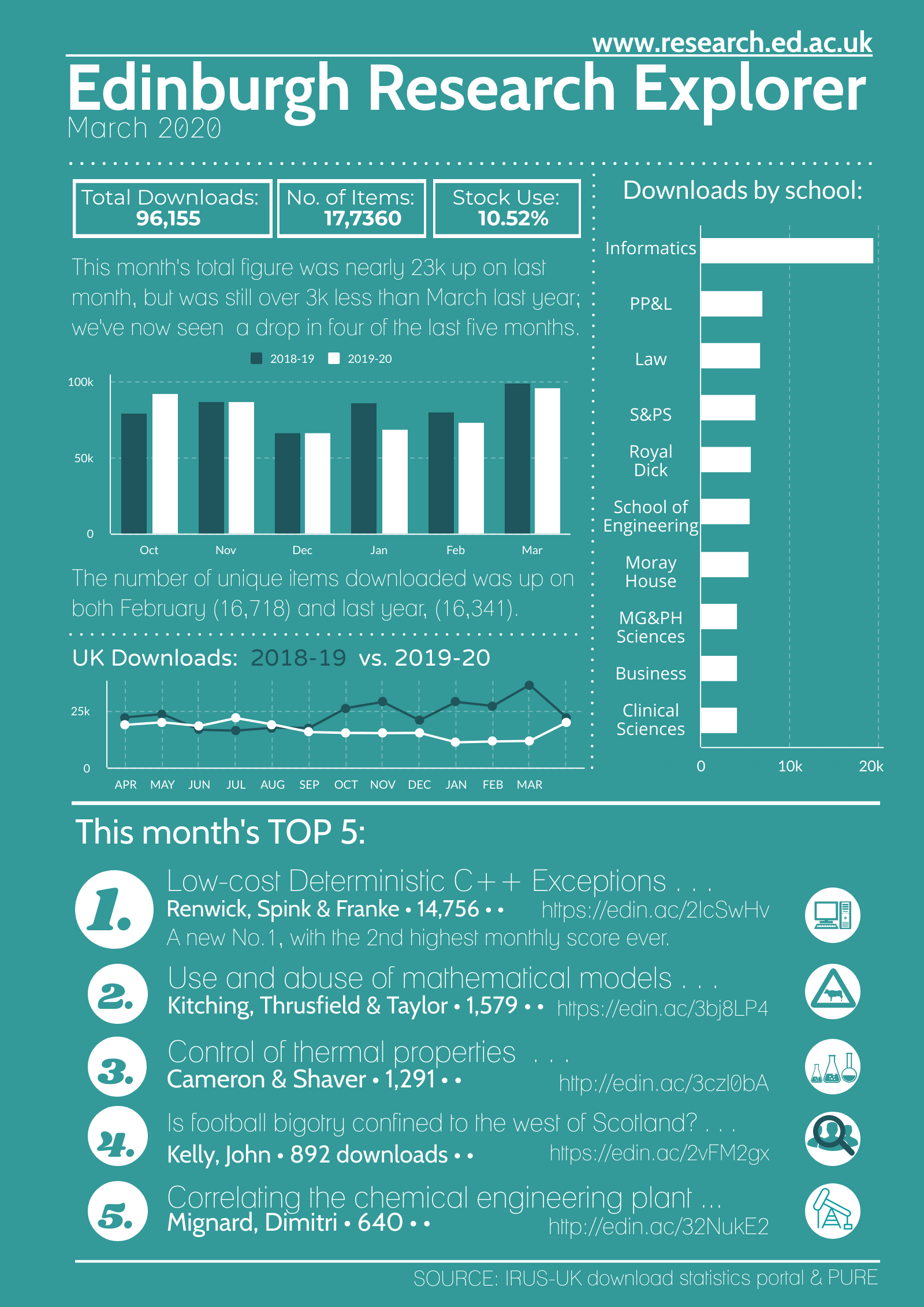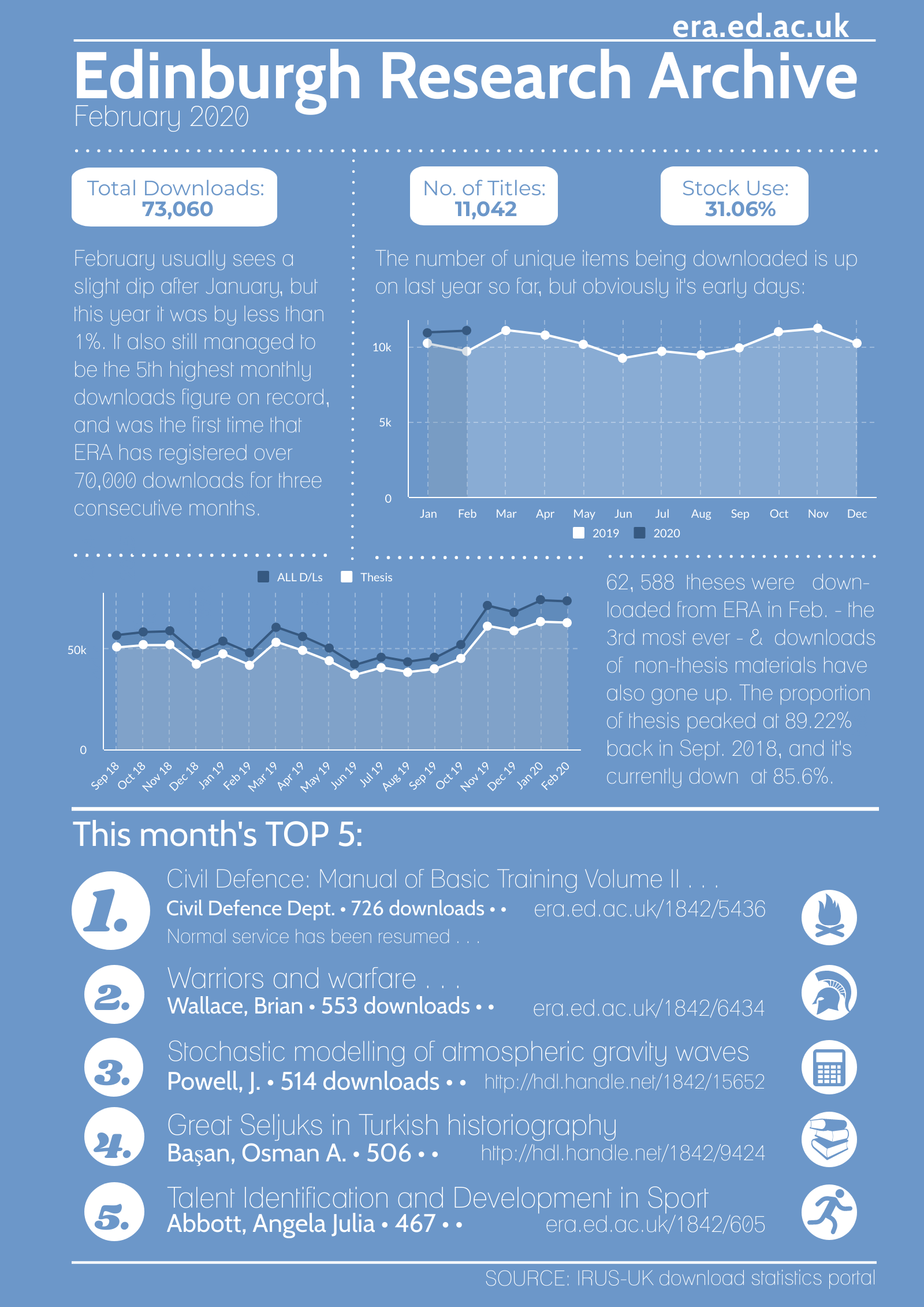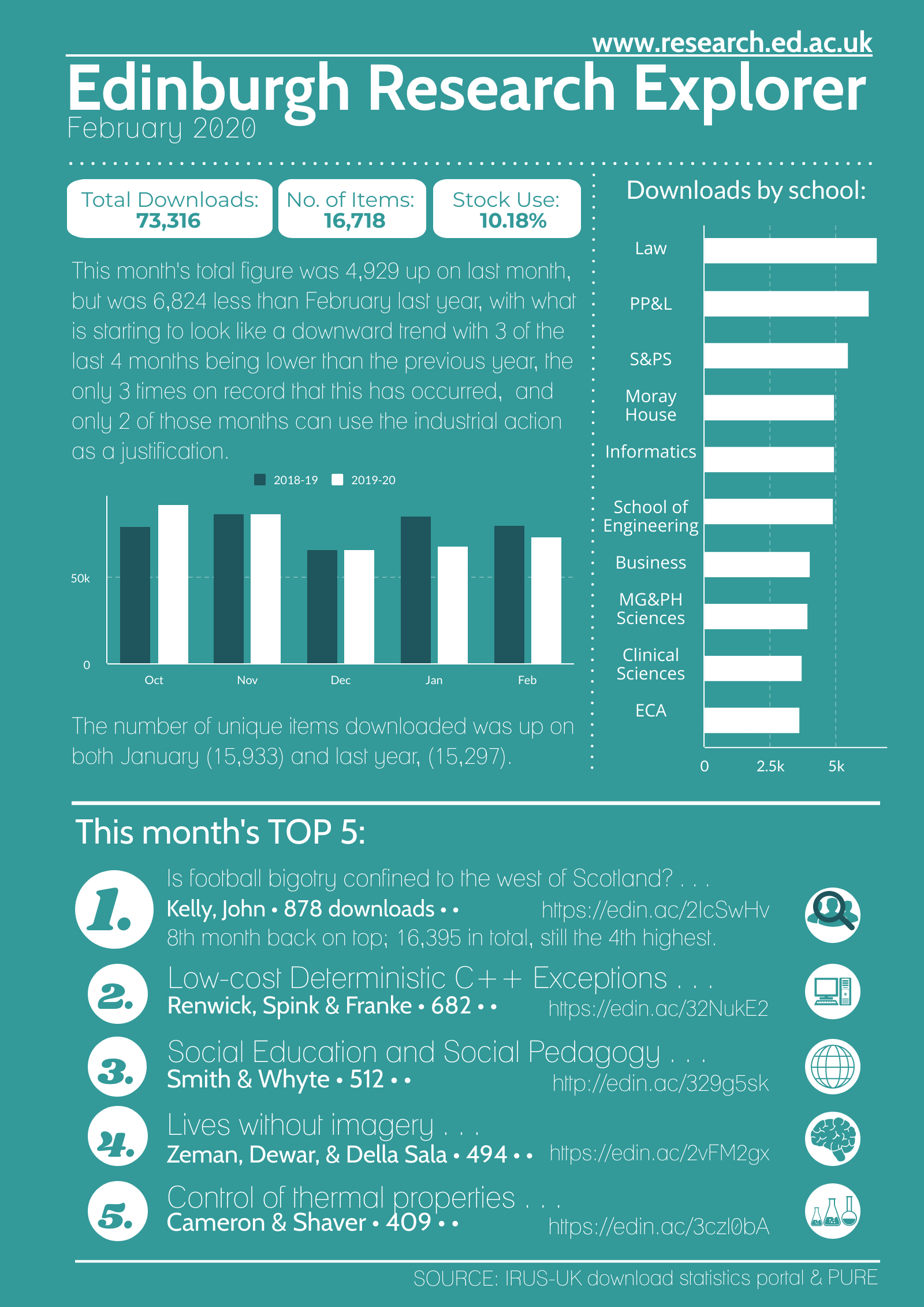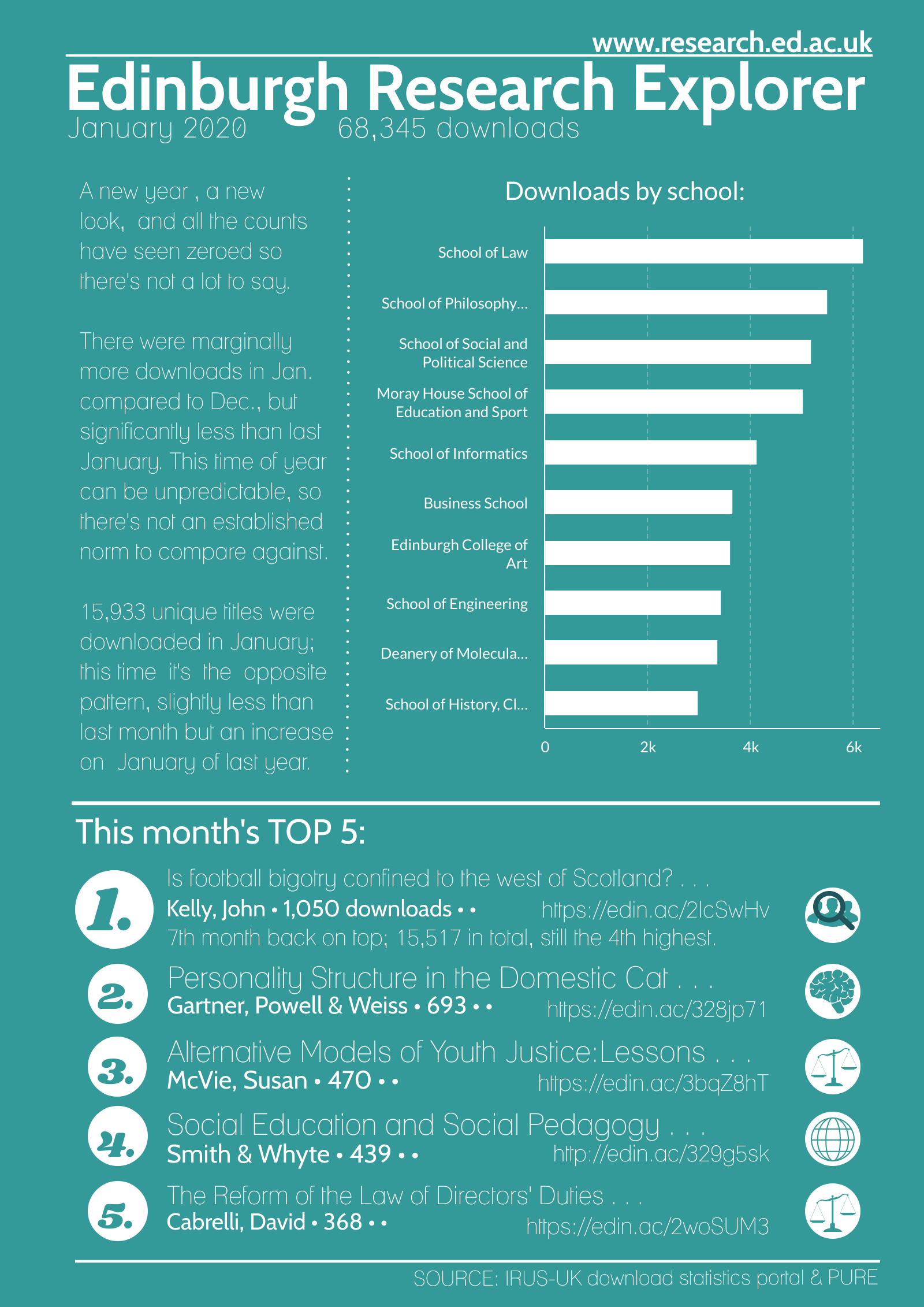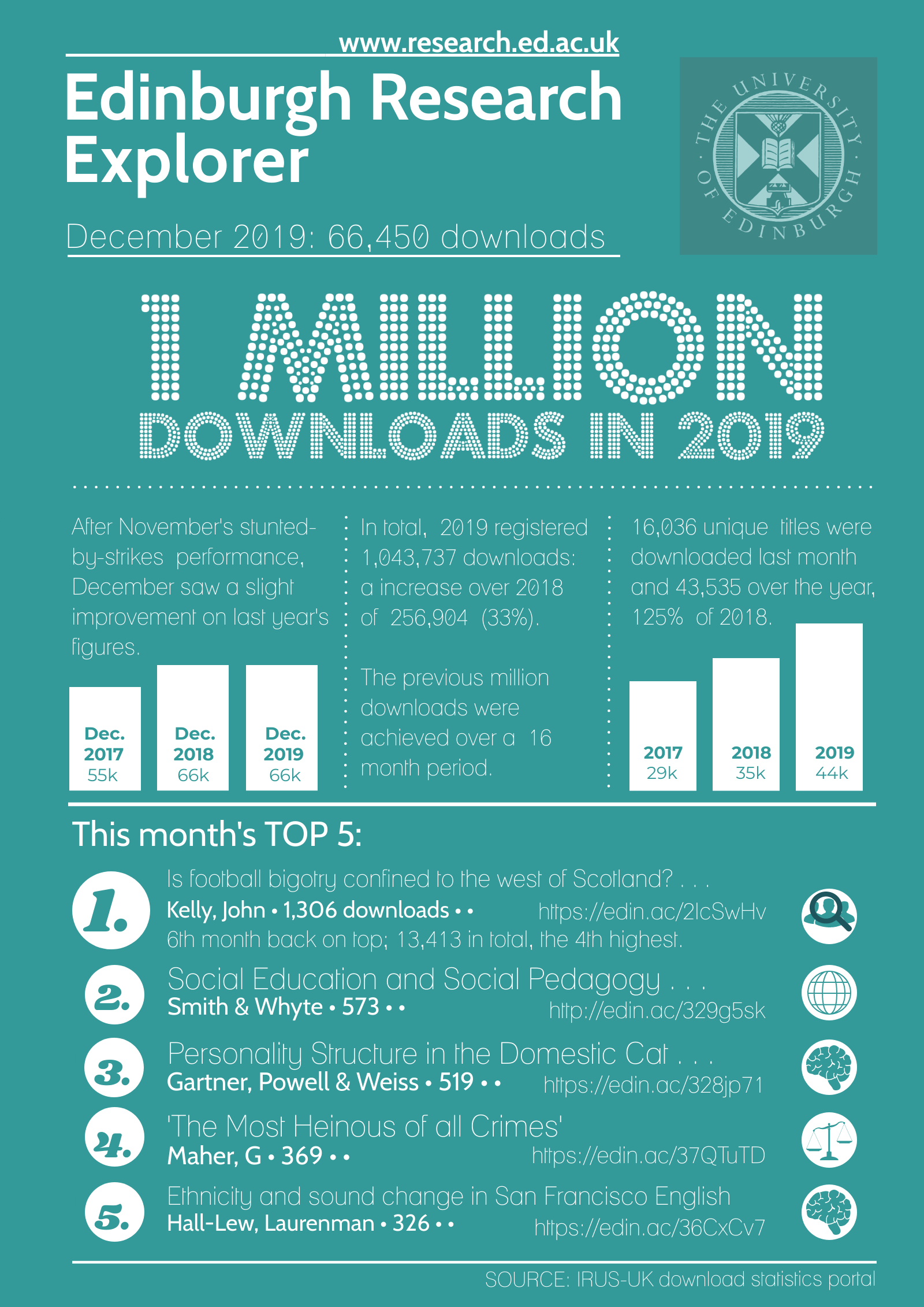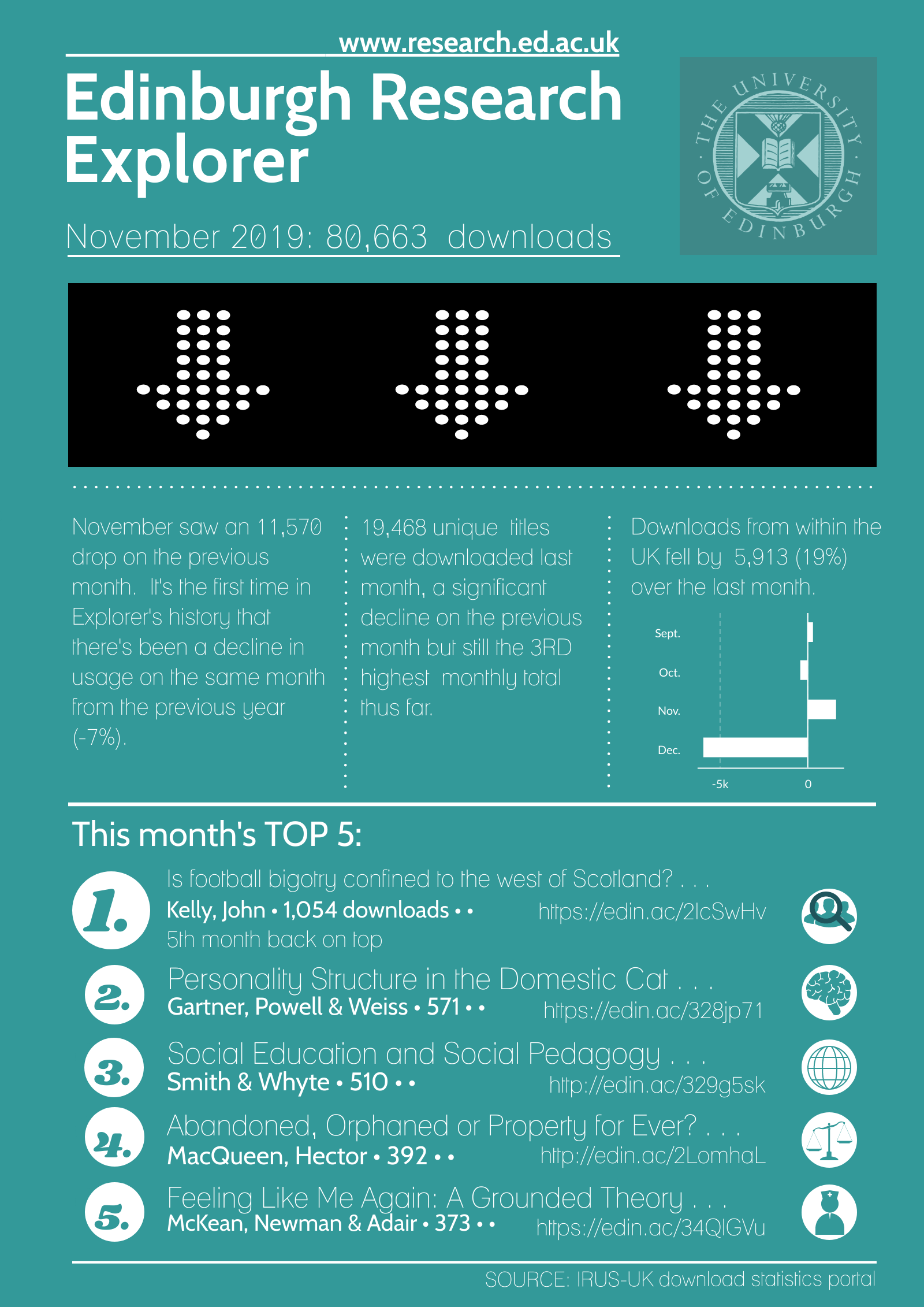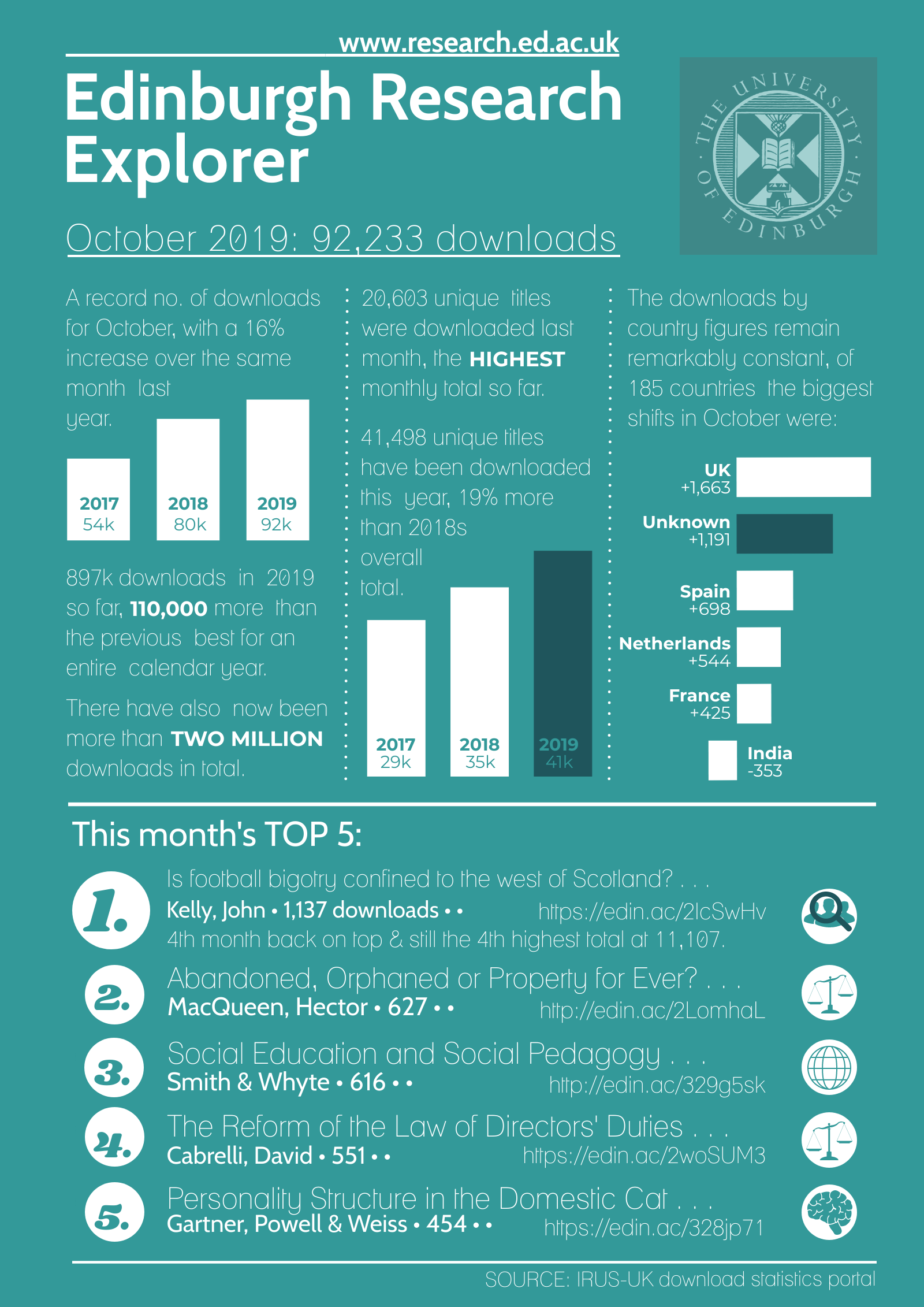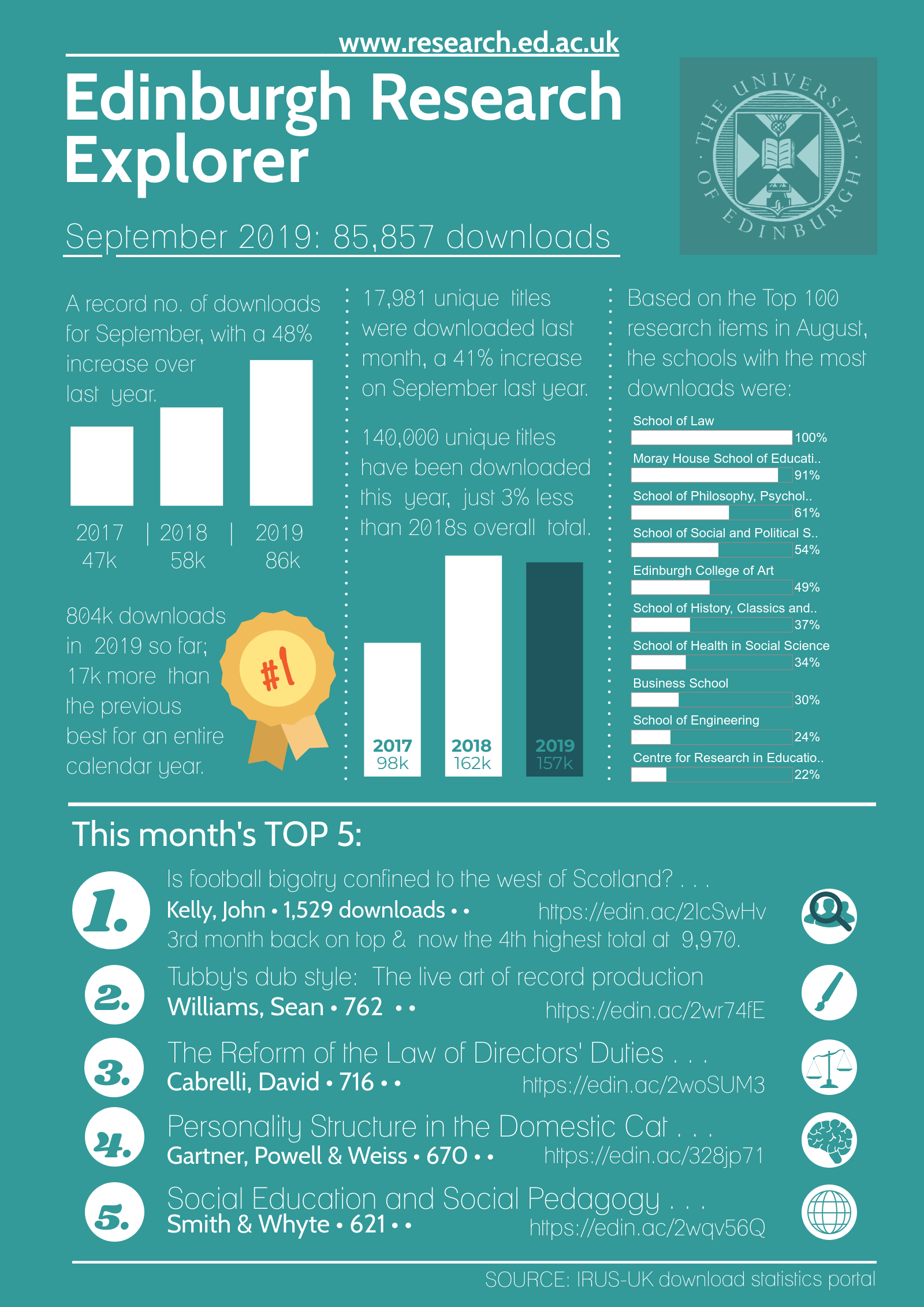Tag Archives: open access
Edinburgh Research Archive Statistics: February 2020
Edinburgh Research Explorer Statistics: February 2020
Edinburgh Research Explorer Statistics: January 2020
Edinburgh Research Explorer Statistics: December 2019
Edinburgh Research Explorer Statistics: November 2019
How to be Popular (in Edinburgh Research Explorer)
Edinburgh Research Explorer • www.research.ed.ac.uk
These are conclusions from a survey of the Top 100 MOST POPULAR downloads from Edinburgh Research Explorer in August 2019, it contains some VERY obvious biases and doesn’t reflect the breadth, depth, or usefulness of the repository as a whole; and shows that whilst OPEN ACCESS can reach a wider audience, it can also be ignored by a wider audience.
1. STEER CLEAR OF SCIENCE

Research items from science-related schools made up 18% of the Top 100, dropping to 12% in the Top 50 and 0% in the Top 10.
2. DON’T COLLABORATE

With each additional author, the number of items and the average number of downloads decreased.
3. YOU DON’T HAVE TO WRITE IN ENGLISH, BUT IT HELPS
In the Top 100, one item was written in Italian, the remainder in English:
that was also one of only five items that month, that failed to find an audience outwith the UK.
4. GO OPEN-ACCESS
8 of the Top 100 items didn’t offer Open-Access Permissions, they averaged 25% fewer downloads than the overall average.
Beginning of a new ERA
We are pleased to announce that the Edinburgh Research Archive (ERA) has recently had a lot of work done to improve it’s looks, add new functionality and clean up some of our collections data.
For those of you who are not familiar with ERA it is is a digital repository of original research produced at The University of Edinburgh. The repository contains documents written by, or affiliated with, academic authors, or units, based at Edinburgh that have sufficient quality to be collected and preserved by the Library, but which are not controlled by commercial publishers. Holdings include around 27,000 full-text digital doctoral theses, 1,500 masters dissertations, and numerous other project reports, briefing papers and out-of-print materials. In October 2019 we recorded 223,000 visitors to ERA who downloaded 51,984 items.
Details of some of the improvements are listed below:
| Software upgrade | The DSpace platform was upgraded from version 4.2 to 6.3 | ||
| Face lift | Visual redesign and styling ERA to make it more appealing | ||
| DOI allocation | New functionality to assign DOIs to deposited items | ||
|
New domain |
New URL => era.ed.ac.uk | ||
| Fix subject terms | Change scanning metadata information to be stored in dc.relation.ispartof and not dc.subject. |
✔ |
|
| Log-in expiry time | Set login expiry time to an hour. |
✔ |
|
| Date-format | Go from yyyy-mm-dd to dd-mm-yyyy |
✔ |
|
| UX improvements |
Move Edit Item button up, to the top of the bar, customise drop down list to have most used elements at the top. |
❌ |
|
| Default language boxes | Give “en” as default to language boxes. |
Of all the new improvements I am most excited about the new functionality to assign Digital Object Identifiers (DOIs) to items deposited in ERA. All new items will be automatically assigned a DOI, and we will investigate how to do this for the rest of the nearly 35,000 items already online.

